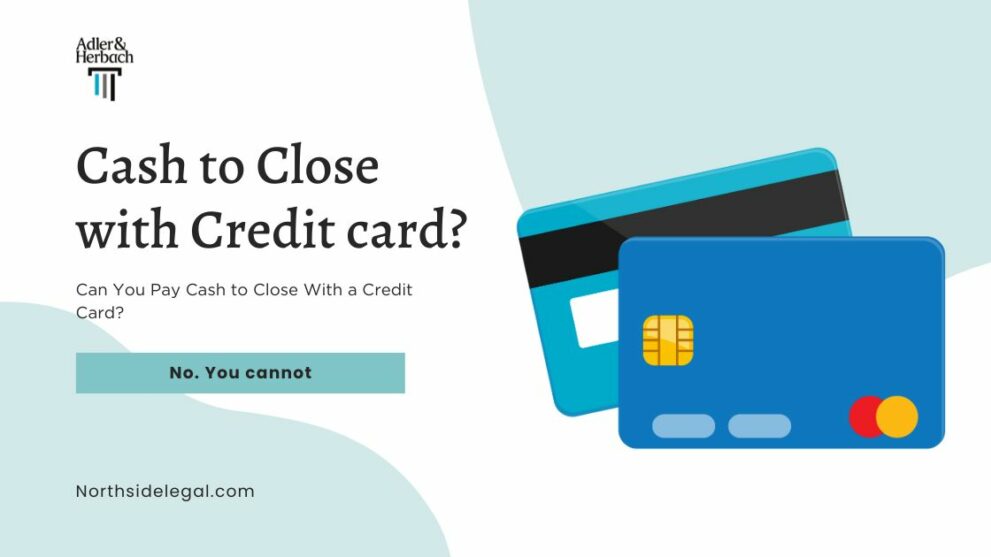When buying a home and seeing the “cash to close” figure on your Loan Estimate, a logical question is – can I just pay the cash to close by charging it to my credit card? The answer is more nuanced than a simple yes or no.
Can you pay cash to close with a credit card?
You cannot pay cash to close with credit cards except for a few items that come under closing costs. Settlement agents or title companies will not accept credit card payments for any portion of the closing costs to be collected at closing. The reason for this is that all funds must comply with government mandated ‘good funds’ laws, which exclude credit card payments.
There may be some items included in the ‘cash to close’ figure on your Loan estimate that can be paid by credit card prior to closing (also referred to as ‘paid outside of closing’ or ‘POC’). Some examples may be your loan application fee, appraisal fee and homeowner insurance premium.

Example
Here is an example of how to calculate cash to close. Let’s assume
- Purchase price: $300,000
- Down payment: 20% ($60,000)
- Closing costs: 3% ($9,000) – A portion of this may be payable via credit cards prior to closing.
- Prepaid expenses: homeowners insurance and property taxes escrows ($2,000)
Cash to close = Down payment + closing costs + prepaid expenses = $71,000
How to pay cash to close?
To pay cash to close at the settlement (or closing), a home buyer must use the following payment methods: cashier’s checks or wire transfer, as opposed to credit cards or personal checks. These methods ensure that the funds are immediately available and satisfy ‘good funds’ laws and requirements.
1. Cashier’s Check
A cashier’s check is drawn on the customer’s bank funds, but instead of just certifying your own funds, the bank directly issues the check using its own available money. The bank assumes the responsibility of drawing the money from your account. Cashier’s checks include security features and require a signature to help prevent fraud. They represent a direct obligation of the bank.
2. Wire Transfer
A wire transfer allows you to electronically send money from your bank account to another recipient’s account, such as your title company or settlement agent. You instruct your bank to wire the funds either in person, on the phone, or online. The money is deducted from your account immediately but may still take some time to arrive in the recipient’s account. Wire transfers provide a secure electronic fund transfer.
What You’d Know About Paying Cash to close with Credit cards?
Here are the key things homebuyers should know about paying cash to close with credit cards.
1. Types Allowed
Fees typically paid upfront like the home inspection, appraisal, and first year’s insurance premium are more likely to be approved on a credit card by lenders. But you can not pay any amount due at closing using credit cards.
2. No Rewards Windfall
While it may be tempting to earn miles or cashback, if you end up with balances that will incur interest, the fees may outweigh any rewards.
3. Title Company Rules
Even if your lender gives the okay, the title company will not be able to accept credit cards in connection with your closing.
4. Consult Your Lender
Before putting closing costs on a credit or card, speak to your loan officer to confirm specific policies on amounts, eligible fees, and any underwriting issues that new or increased credit card balances may present.
In Summary
Aim to use secure funds like cashiers checks or wired funds rather than credit which must be paid back with interest. But within limits, credit cards can provide flexibility to cover some upfront closing costs during a major financial transaction like buying a home.

